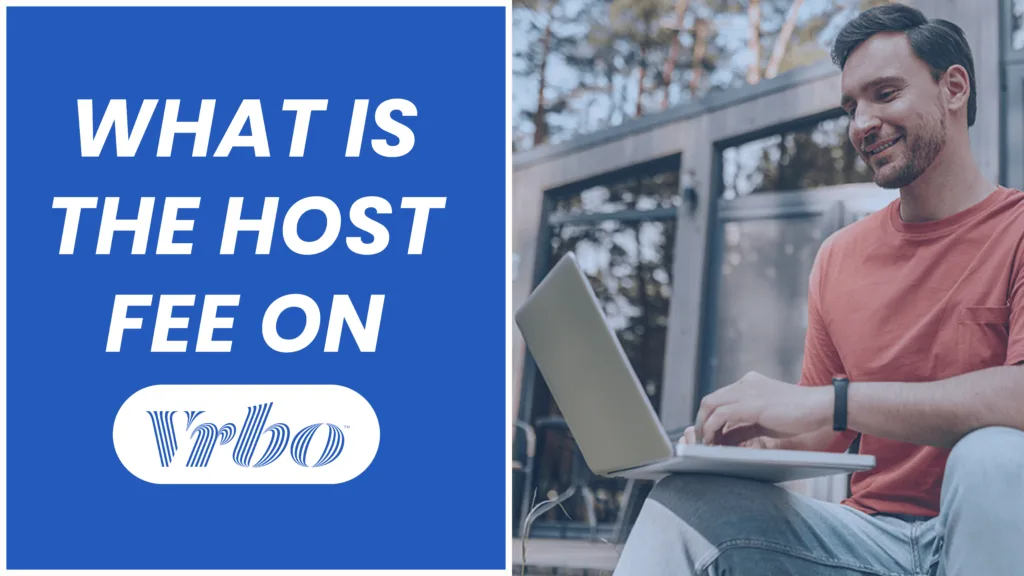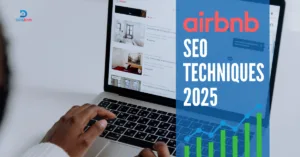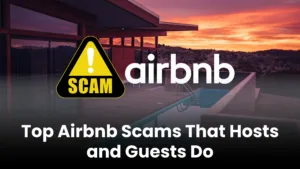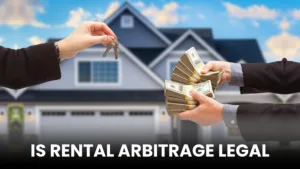
Becoming a Vrbo is a great way to earn income from your luxurious, privacy-focused properties. However, you cannot run from the host fees that come with each rental.
Still, you can save on Vrbo fees by understanding the fee structure.
By understanding the different Vrbo host fee models, you can choose the one that best fits your needs. And it will help you ‘save’ (not a lot but) a significant portion of your rental earnings on host fees for your short-term rental venture.
So, how much does Vrbo charge as a host fee? Does it have different fee models? If so, how are they different from each other? Which will suit you? Read on to learn all this!
What Is the Vrbo Host Fee?

The Vrbo host fee is a particular amount that Vrbo charges property owners/hosts to list and rent their vacation homes on the platform.
This commission fee (plus payment processing fee) covers the cost of the platform’s services, such as customer support, payment processing, and marketing costs.
Interestingly, Vrbo offers two host fee models:
- Pay-Per-Booking Model
- Annual Subscription Fee
Hosts can choose between the two models as per their choice, current portfolio, and/or needs.
While it may seem like an extra expense, it provides hosts a few benefits.
For example, Vrbo charges guests on behalf of guests and sends earnings directly to the host (after deducting its fees) for a secure transaction. The platform also lets hosts list their properties and give them visibility to get bookings.
Types of Vrbo Host Fee Models (Detailed Overview)
As mentioned earlier, Vrbo offers two main ways for hosts to pay fees: the pay-per-booking model and the annual subscription fee. Here is what both offer:
1. Pay-Per-Booking Model
The pay-per-booking model means that Vrbo charges a set percentage on every confirmed booking you receive on one of your listings instead of an annual fee.
Vrbo takes 8% of each booking as a service fee. This includes a 5% commission on the total rental amount (nightly rate + cleaning fee) and a 3% payment processing fee.
You don’t pay anything up front; Vrbo only charges you when a guest books your place.
However, one thing the host must know is that these pay-per-booking fees do not cover property damage protection or cancellation protection.
Pros of Pay-Per-Booking
- You don’t have to pay anything until you start getting bookings.
- If you only rent your property a few times a year, this model makes more sense.
- If you don’t get bookings, you don’t pay any fees.
Cons of Pay-Per-Booking
- If you get a lot of bookings, these fees can add up quickly.
- You won’t know exactly how much you’ll pay in fees each year.
Best For: Hosts who are new to the vacation rental industry. Or have fewer bookings or properties with more seasonal/less frequent demand.
2. Annual Subscription Fee
In this model, Vrbo hosts pay an annual subscription fee of $499 to the platform once a year. This means there are no per-booking-based charges or commission fees.
This one-time payment allows hosts to list their properties on Vrbo for an entire year. It covers all service/commission fees and allows hosts to keep 100% of their booking revenue.
However, hosts still pay the 3% payment processing fee.
This model includes access to many special features. Hosts can access the reservation manager, list their properties on international sites, upload up to 50 HD photos, and much more.
Pros of Annual Subscription
- You can rent unlimited properties and get unlimited bookings without paying per-booking commissions.
- You pay one set fee, so you always know your costs.
- You keep a larger share of your profits since you don’t pay a commission per booking.
Cons of Annual Subscription
- You have to pay $499 before you start getting bookings.
- If you don’t rent your place often, you might not make back the cost of the subscription.
Best For: Host who frequently rent out their properties, have a high occupancy rate, and generate more than $10,000 annually.
Which Suits You: Pay-Per-Booking or Annual Subscription?

The pay-per-booking model is suitable if you only rent out your properties less often or only during peak season. You will pay a total of 8% of the booking fee (commission + payment processing) only when you have a booking.
On the other hand, if your properties are booked frequently and you earn over $10,000 per year, the annual subscription is the option you should go for.
Why? Because it can help you save money in the long run. You won’t have to pay a commission for each booking, so more of your earnings will stay with you.
Conclusion
Vrbo host fees depend on the fee models that property owners choose.
If the host selects the pay-per-booking model, they are charged an 8% service charge (commission + payment processing fee) for each confirmed booking.
With the annual subscription model, hosts pay a one-time fee of $499 for a whole year, which covers commission fees for all bookings.
Each model has its own pros and cons. Make sure you choose one smartly.
FAQs
What is the Vrbo Host Fee?
Vrbo charges hosts a fee to list, rent properties on its platform, and use other services. Hosts can choose between an 8% pay-per-booking model or a $499 annual subscription.
Does Vrbo Make Hosts Pay a Cleaning Fee?
No, Vrbo does not charge hosts a cleaning fee. However, hosts can add a cleaning fee to the guest’s booking. If using the pay-per-booking model, this fee is included in the 5% commission.
Does the Vrbo Annual Subscription Cover the Payment Processing Fee?
No, the $499 annual subscription only covers the service and commission fees. Hosts still pay a 3% payment processing fee on each booking, which is deducted before Vrbo transfers the earnings.
How Does Vrbo Send Payments to Hosts?
Vrbo processes guest payments and deducts its fees. Hosts receive their earnings one day after check-in. The money is sent to the host’s bank account, usually within 5-7 business days.








